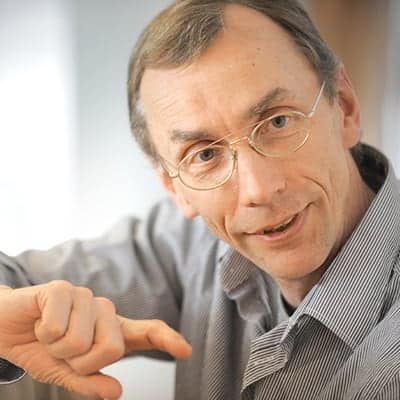In China, the first genetically modified babies are said to have seen the light of day. This once-taboo act shows how far genetic engineering can revolutionize life on the planet. Swiss radio and television company SRF’s Wolfram Eilenberger interviewed NOMIS awardee and paleogeneticist Svante Pääbo and bioethicist Effy Vayena in the Sternstunde Philosophie (Great moments in philosophy) program “Tatort Genom: Vom Neandertaler zum Übermenschen?” (“Genome crime scene: from Neandertal to superhumans?”).
No field of knowledge has achieved greater progress in recent decades than human genetics. The questions involved are at the heart of our way of life: Which genes are specific to humans? How much Neandertal is still in us? Which forms of diagnosis and healing promise new techniques and intervention options? Are we on the cusp of a new, genetically optimized superhuman? Together with Vayena and Pääbo, Eilenberger discusses the limits, dangers and utopian possibilities of human genetics. The program is presented in German.
Pääbo is director of the Department of Evolutionary Genetics at the Max Planck Institute in Leipzig, Germany and recipient of the 2017 NOMIS Distinguished Scientist Award. He is one of the founders of paleogenetics and became best known for his pioneering research on the Neandertal genome. Pääbo is investigating the genetic differences and functional consequences that occurred at the split between the modern human and their archaic human ancestors about half a million years ago.


